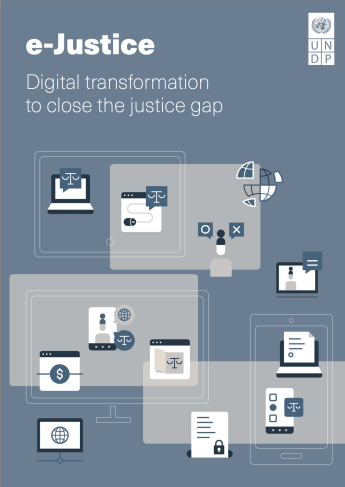Digitalization
and e-justice
Digital tools can improve justice sector efficiency, transparency and access to justice. When employed strategically, e-justice can advance the rule of law and protect human rights, while also improving the effectiveness of justice systems and institutions. But technology can also be used in ways that exacerbate injustices, negatively impact rights and freedoms, fuel violence, and enable criminality. Identifying and understanding both the opportunities and the risks of technology is critical for fully realising its role in advancing justice, human rights and the rule of law.

In 2020, pandemic responses disrupted justice systems and closed many courts. Technology was quickly and widely heralded as the solution to overcoming many of the challenges of delivering justice during lockdowns. Digital transformation in the justice sector accelerated. As governments embraced updated platforms for online filing, digital processes and virtual courts, new momentum was given to longstanding calls for the modernization and digitalisation of justice services around the world.
The Justice Futures CoLab promotes e-justice not only for infrastructure updates, but as a strategic tool for transforming justice systems to be more effective, accessible, and responsive. When embraced as a rights-protection strategy, e-justice can enable development approaches, protect the rule of law and human rights, and deliver people-centred justice. We also ensure that a justice and human rights lens is mainstreamed across UNDP's efforts towards digital transformation, in line with the UNDP Digital Strategy (2022-2025).
Latest publications
The paper analyses the risks and challenges of digitalization processes and how they can affect the rights of marginalized and vulnerable communities. Summarizing key rule of law and human rights implications that arise when technology is used in the justice system, the paper recommends rigorous, proactive steps to keep rights protection and access to justice at the centre of the technological evolution of justice systems.
The toolkit is a series of ten practical tools including checklists, design guides and project templates to help rule of law practitioners as they initiate e-justice projects or respond to requests for support from national partners, courts, legal institutions or civil society.
Latest updates
Focal point
Lara Deramaix
Access to Justice Specialist
lara.deramaix@undp.org

 Locations
Locations

